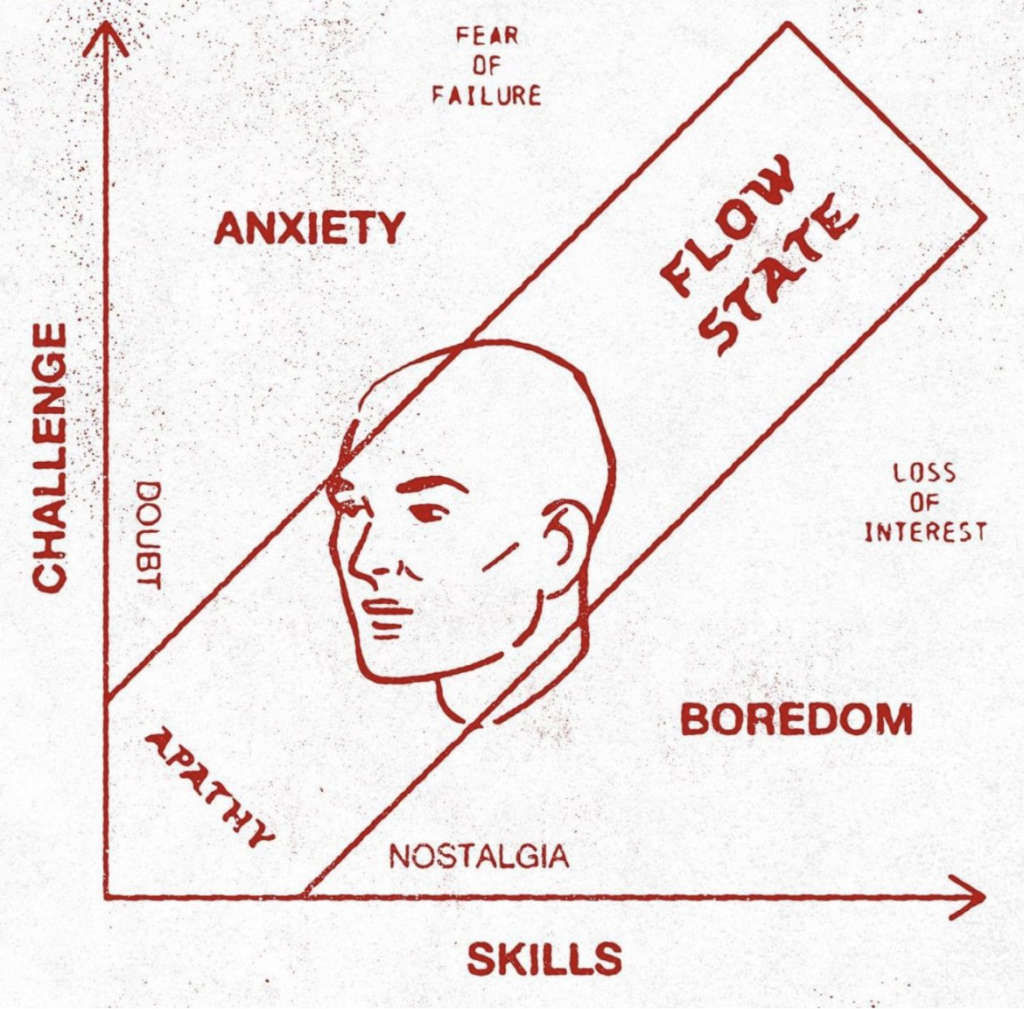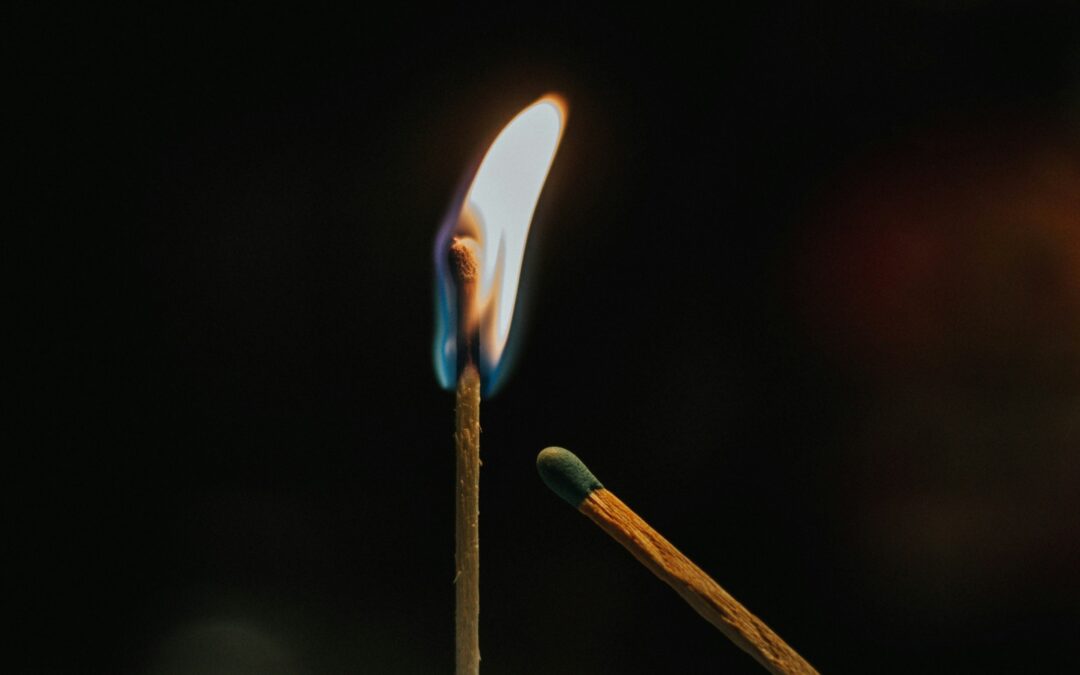Doing nothing fuels creativity and innovation, but that fuel is wasted if you don’t put it to use. Idleness clears the mind, allowing fresh ideas to emerge, but those ideas must be acted upon to create value.
Why is doing something with that fuel so difficult?
Don’t blame the status quo.
The moment we get thrown back into the topsy-turvy, deadline-driven, politics-navigating, schedule-juggling humdrum of everyday life, we slide back into old habits and routines. The status quo is a well-known foe, so it’s tempting to blame it for our lack of action.
But it’s not stopping us from taking the first step.
We’re stopping ourselves.
Blame one (or more) of these.
Last week, I stumbled upon this image from the Near Future Laboratory, based on a theory from psychologist Mihaly Csikszentmihalyi’s book Flow:

There’s a lot going on here, but four things jumped out at me:
- When we don’t have the skills needed to do something challenging, we feel anxiety
- When we don’t feel challenged because our skills exceed the task, we feel boredom
- When we don’t feel challenged and we don’t have the skills, we feel apathy
- When we have the skills and feel challenged, we are in flow
Four different states. Only one of them is positive.
I don’t love those odds.
Yet we live them every day.
Every day, in every activity and interaction, we dance in and through these stages. Anxiety when given a new project and doubt that we have what it takes. Boredom when asked to explain something for the 82nd time to a new colleague and nostalgia for when people stayed in jobs longer or spent time figuring things out for themselves. Sometimes, we get lucky and find ourselves in a Flow State, where our skills perfectly match the challenge, and we lose track of space and time as we explore and create. Sometimes, we are mired in apathy.
Round and round we go.
The same is true when we have a creative or innovative idea. We have creative thoughts, but the challenge seems too great, so we get nervous, doubt our abilities, and never speak up. We have an innovative idea, but we don’t think management will understand, let alone approve it, so we keep it to ourselves.
Anxiety. Boredom. Apathy.
One (or more) of these tells you that your creative thoughts are crazy and your innovative ideas are wild. They tell you that none of them are ready to be presented to your boss with a multi-million-dollar funding request. In fact, none of them should be shared with anyone, lest they think you, not your idea, is crazy.
Then overcome them
I’m not going to tell you not to feel anxiety, boredom, or apathy. I feel all three of those every day.
I am telling you not to get stuck there.
Yes, all the things anxiety, boredom, and apathy tell you about your crazy thoughts and innovative ideas may be true. AND it may also be true that there’s a spark of genius in your crazy thoughts and truly disruptive thinking in your innovative ideas. But you won’t know if you don’t act:
- When you feel anxious, ask a friend, mentor, or trusted colleague if the challenge is as big as it seems or if you have the skills to take it on.
- When you feel bored, find a new challenge
- When you feel apathetic, change everything
Your thoughts and ideas are valuable. Without them, nothing changes, and nothing gets better.
You have the fuel. Now, need to be brave.
We need you to act.
